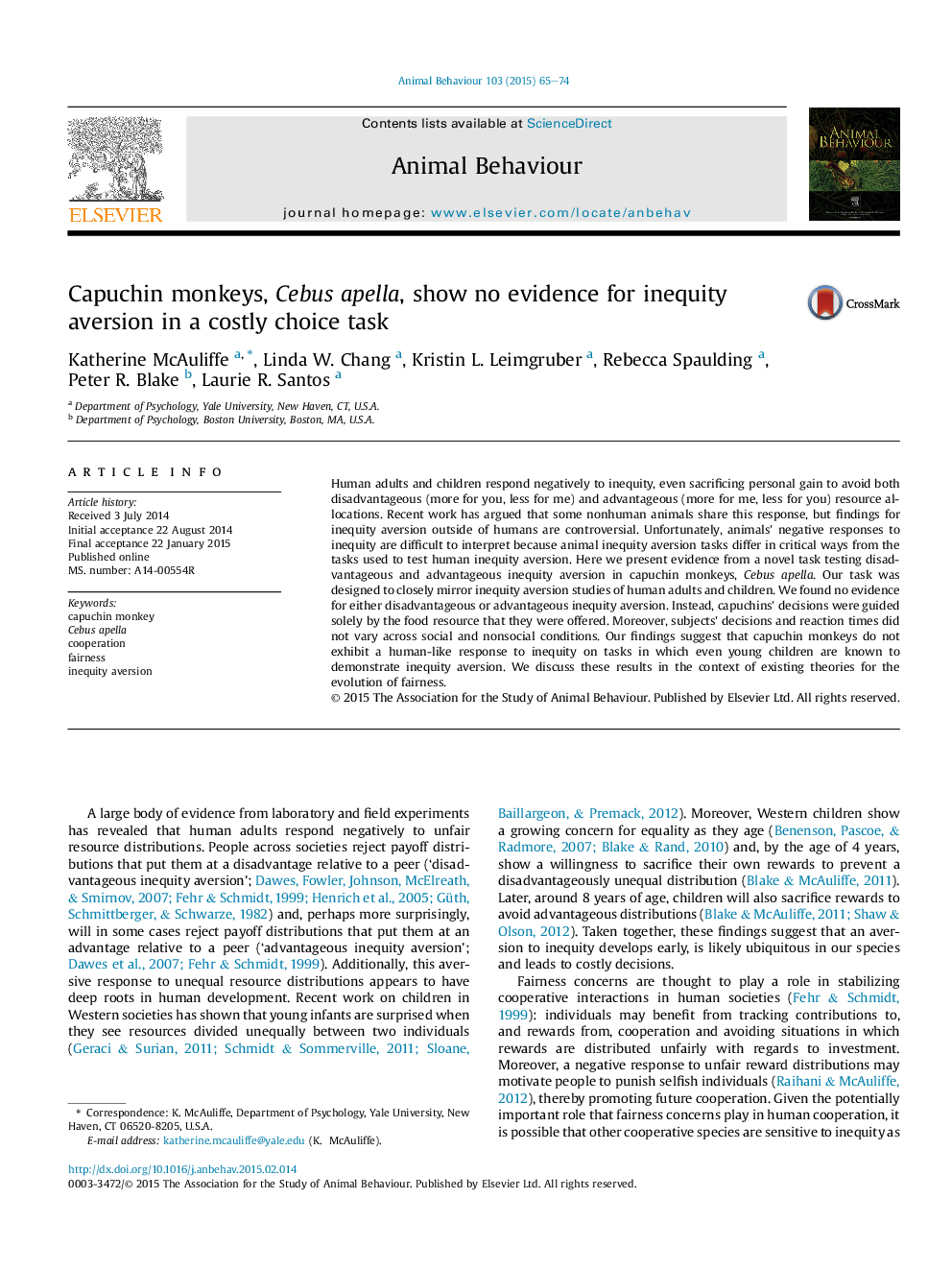| Article ID | Journal | Published Year | Pages | File Type |
|---|---|---|---|---|
| 8489906 | Animal Behaviour | 2015 | 10 Pages |
Abstract
Human adults and children respond negatively to inequity, even sacrificing personal gain to avoid both disadvantageous (more for you, less for me) and advantageous (more for me, less for you) resource allocations. Recent work has argued that some nonhuman animals share this response, but findings for inequity aversion outside of humans are controversial. Unfortunately, animals' negative responses to inequity are difficult to interpret because animal inequity aversion tasks differ in critical ways from the tasks used to test human inequity aversion. Here we present evidence from a novel task testing disadvantageous and advantageous inequity aversion in capuchin monkeys, Cebus apella. Our task was designed to closely mirror inequity aversion studies of human adults and children. We found no evidence for either disadvantageous or advantageous inequity aversion. Instead, capuchins' decisions were guided solely by the food resource that they were offered. Moreover, subjects' decisions and reaction times did not vary across social and nonsocial conditions. Our findings suggest that capuchin monkeys do not exhibit a human-like response to inequity on tasks in which even young children are known to demonstrate inequity aversion. We discuss these results in the context of existing theories for the evolution of fairness.
Related Topics
Life Sciences
Agricultural and Biological Sciences
Animal Science and Zoology
Authors
Katherine McAuliffe, Linda W. Chang, Kristin L. Leimgruber, Rebecca Spaulding, Peter R. Blake, Laurie R. Santos,
